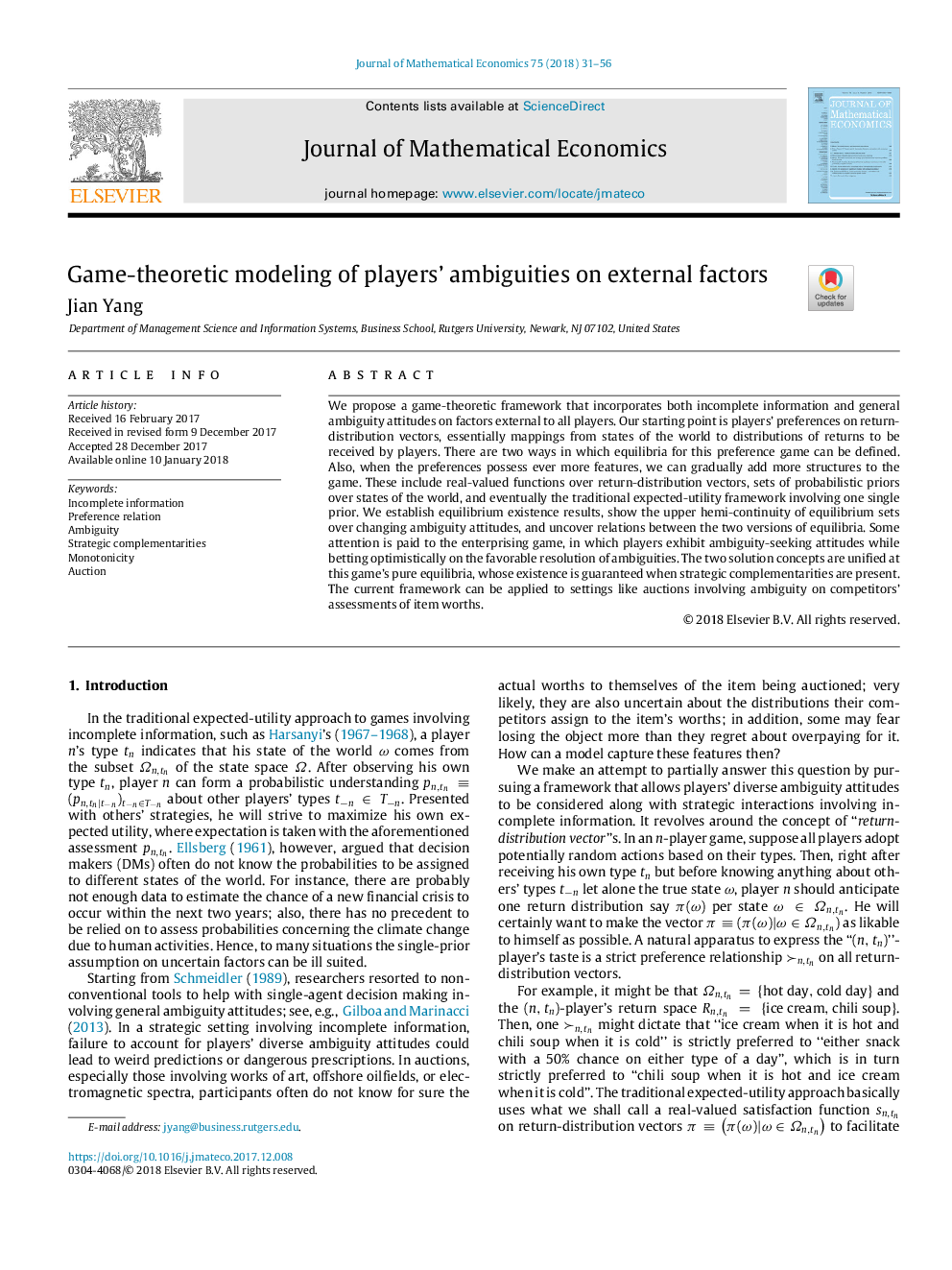ترجمه فارسی عنوان مقاله
مدل سازی نظری بازی ابهام بازیکنان بر عوامل خارجی
عنوان انگلیسی
Game-theoretic modeling of players ambiguities on external factors
| کد مقاله | سال انتشار | تعداد صفحات مقاله انگلیسی |
|---|---|---|
| 134712 | 2018 | 26 صفحه PDF |
منبع

Publisher : Elsevier - Science Direct (الزویر - ساینس دایرکت)
Journal : Journal of Mathematical Economics, Volume 75, March 2018, Pages 31-56
ترجمه کلمات کلیدی
اطلاعات ناقص، رابطه ترجیح، بی نظمی، مکمل استراتژیک، یکنواختی، حراج
کلمات کلیدی انگلیسی
Incomplete information; Preference relation; Ambiguity; Strategic complementarities; Monotonicity; Auction;

